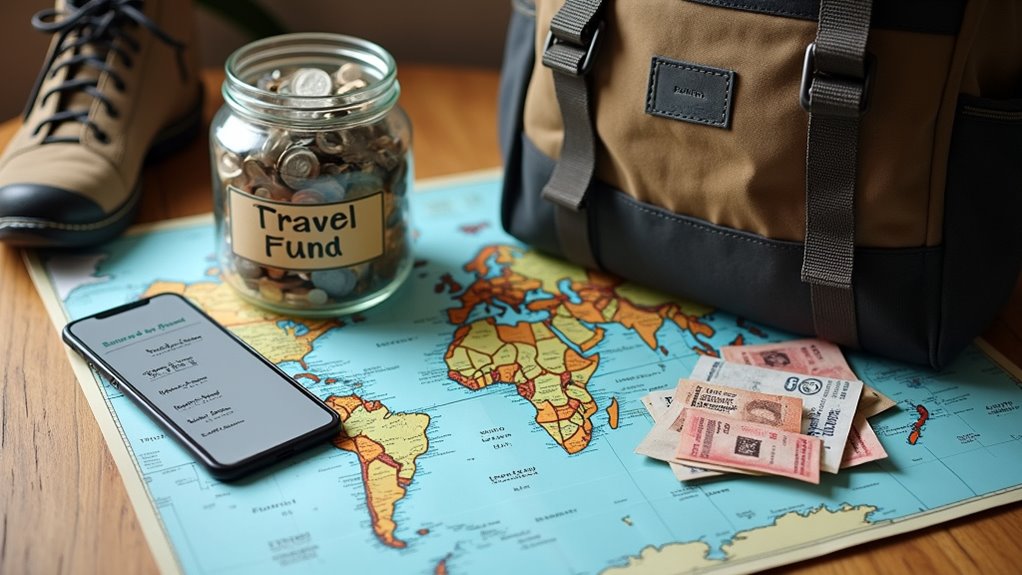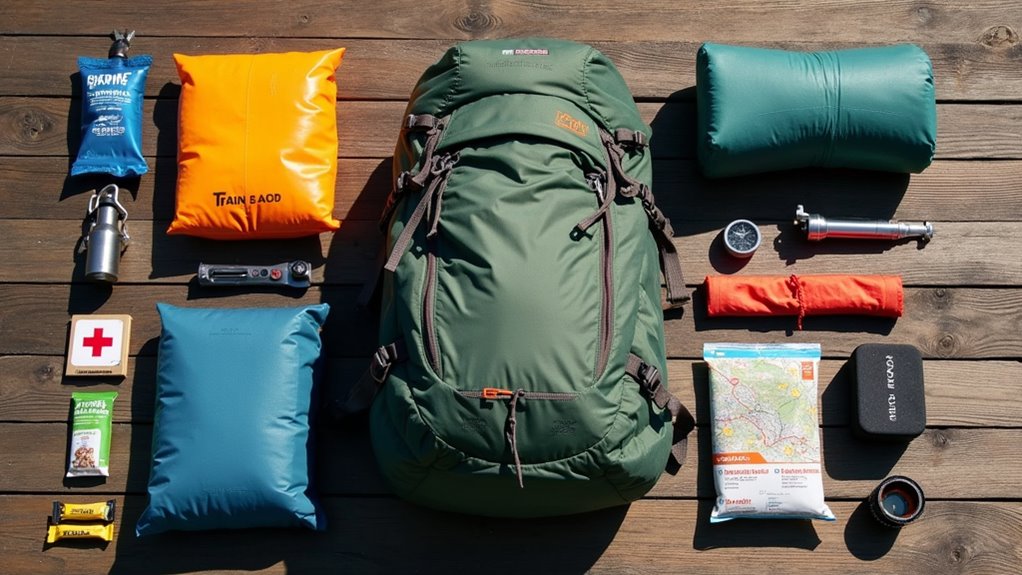To save for a vacation as a budget backpacker, open a dedicated travel savings account and set up automatic monthly transfers from your income. Track your expenses closely, cut non-essential daily costs like dining out or unused subscriptions, and choose budget-friendly options such as hostels with kitchens, local markets for groceries, and public transport. Book flights and accommodation in advance, using price alerts and cashback programs. If you want to maximize your travel funds even further, explore the next steps.
Although planning a vacation can be exciting, it’s essential to approach the process with a clear financial strategy if you want to avoid overspending and unnecessary stress. As a budget backpacker, you need to start by calculating your estimated total trip costs. Factor in transportation, accommodation, meals, activities, and a designated amount for emergencies.
Once you have this figure, allocate a daily spending limit that matches both your travel style and your chosen destination. Utilize budgeting apps or spreadsheets to monitor your expenses before you depart and while on the road, which helps you prioritize essentials and identify areas where you can cut back without sacrificing valuable experiences. Traveling during the off-peak season can also help lower your overall costs, as flights and accommodation tend to be cheaper and attractions are less crowded.
Set a daily spending limit and use budgeting tools to track expenses, helping you prioritize essentials without missing out on memorable experiences.
Open a dedicated savings account exclusively for your trip. Set up automatic monthly transfers—either a fixed sum or a percentage of your income—directly into this account. Make a commitment to avoid using these funds for anything unrelated to travel, and track your savings progress regularly, adjusting your strategy if you notice any shortfalls. Cooking meals instead of dining out is a proven way to save money both at home and while traveling. Many experienced travelers embrace a minimalist lifestyle to reduce expenses while building their travel fund.
Consistency in saving is key to building a reliable travel fund. Cutting non-essential daily expenses contributes greatly to your savings goal. Review your subscriptions and memberships, canceling any you rarely use. Replace frequent dining out with home-cooked meals, and limit impulsive purchases of gadgets or clothing.
Choose public transport, walking, or cycling over more expensive travel options in your daily life. Maximize savings by using cashback, discount, or loyalty programs whenever possible.
When booking your trip, select hostels, guesthouses, or budget hotels, and look for places with kitchen facilities to prepare your own meals. Compare accommodation and transport prices across multiple platforms, and consider using buses, rideshares, or night trains for intercity travel.
Shop at local markets for groceries, and eat at local eateries rather than tourist spots to minimize food costs. Pack light, using only a carry-on if possible, to avoid baggage fees. Bring essential gear, medicines, and toiletries from home. Borrow specialized equipment when needed.
Finally, research and book flights, accommodation, and activities well in advance, set up price alerts, and remain flexible with your travel dates so you can take advantage of discounts and off-peak pricing.









